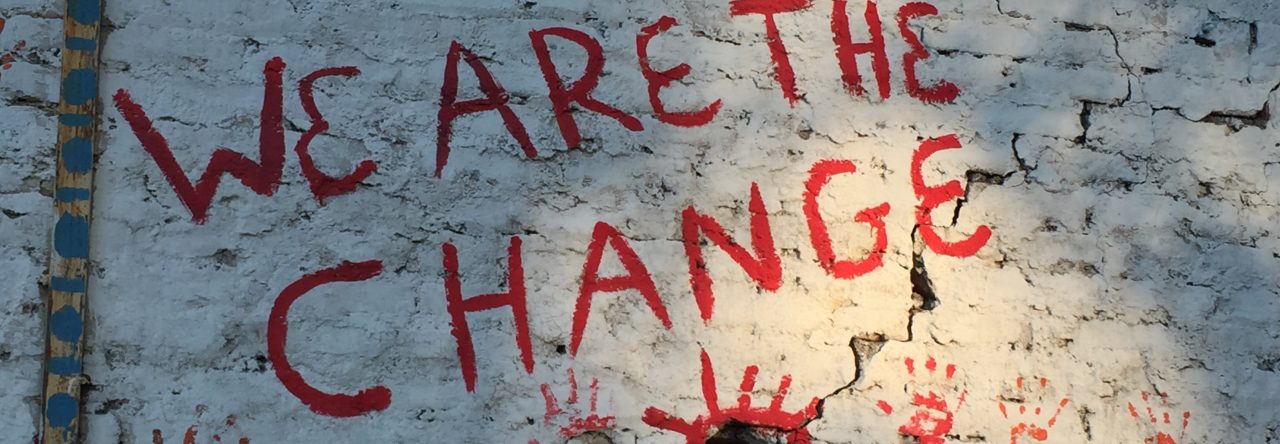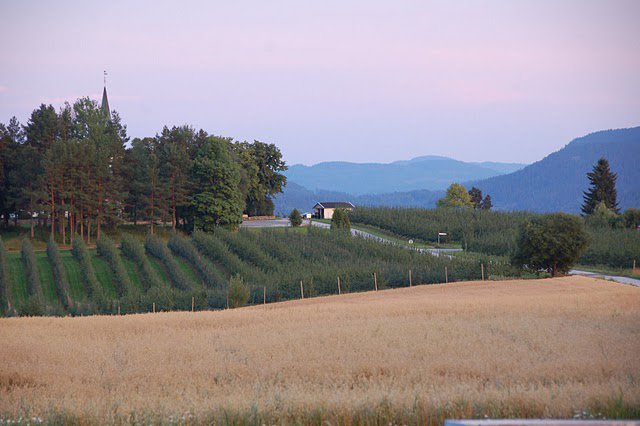
Early morning view from my window at the Kathmandu Guest House in Nepal.(March 2015)
This post is a response to the Weekly Photo Challenge: Early Bird. See more photos here.
"There is some good in this world…and it's worth fighting for." ~ J.R.R. Tolkien


Early morning view from my window at the Kathmandu Guest House in Nepal.(March 2015)
This post is a response to the Weekly Photo Challenge: Early Bird. See more photos here.





In response to The Daily Post’s weekly photo challenge: “Afloat.”

I really love this photo, which I took at the University of Liberia in Monrovia in February, 2008. I love it because it of the sheer entrepreneurial spirit that you often witness in post-conflict societies.
The photocopy entrepreneur was not there on that day, but you can bet your bottom dollar that students on campus knew when s/he would be there to provide the services they needed. Although I have always wondered whether it was possible that the photocopier somehow managed to bring a photocopy machine to this spot by the electric pole. What do YOU think?
In response to The Daily Post’s weekly photo challenge: “Express Yourself.”
My boys, who seem to have spent much of their young lives squabbling, somehow found detente
while staying at my great-grandparents’ farm near the town of Gvarv in Telemark, Norway.
Perhaps it was being out of their normal routine? Or perhaps it was the serenity of their surroundings?
This post is a response to the Weekly Photo Challenge: Serenity. 
When you look out at the ocean, do you ever wonder who is on the other side? I do! So when we were at the beach in South Carolina, I felt compelled to look it up. Turns out that Morocco is directly across the Atlantic from South Carolina. I had recently been to Morocco, so I could vividly picture what was on the ocean as I walked along the shore.
For this week’s Photo Challenge: Dialogue, we are asked to bring two photos into dialogue. The first photo, taken on Sullivan’s Island, South Carolina, looks directly east across the Atlantic Ocean towards Morocco. The second photo, taken in Rabat, looks directly west towards South Carolina. The photographic dialogue even reflects the time difference; the first photo was taken in the early morning, which is afternoon in Morocco.
Sometimes we need a reminder that our beautiful world is really not so big after all. And that often our connections can be greater than our differences.
What to find out what’s on the other side of the ocean from where you are? The Washington Post published a quick reference – check it out here!
A post box near the harbor on the Greek island of Hydra.
This post box post is a response to the Weekly Photo Challenge: Containers

A Few Reflections On How We Define “Family”
We had just dropped off my old friend Erik and his unwieldy crew at the airport, when my daughter Eliza let out a dramatic sigh from the back of the minivan.
“It’s pretty much BORING without our cousins!”
Curious, I launched into a lengthy cross-examination to determine why she thought they were our blood relations. She went along with the questioning for a while, mumbling one syllable responses out of the corner of her mouth as she gazed morosely out the window at a long, undulating line of sunflowers. Some kind person, in the interest of beauty, had planted them along the highway. Now they were more than six feet tall, so large that you could almost see the Fibonacci sequences in their bright spirals. Even from a minivan with a six-year-old pouting in her booster seat in the back.
After several miles of this, Eliza suddenly sucked in air until her cheeks were full. She then blew it all out, frustration personified. I watched her in the rearview mirror as she put everything in her small, defiant being into these words:
“Because! I just FEEL like they are.”
How do you define family? Is it common ancestry? Shared experiences? Mutual commitment? Living in the same household? Common values? The people you know you can count on for support? The people you know you can get into a knock-down-drag-out fight with but they’ll still love you? People who you feel deeply connected to even though you rarely see them? All of the above? Or none of them at all?
The boys in the photo above are brothers I met at the Buduburam Refugee Settlement in Ghana. Their mother Kebbeh considers them her sons, although only the oldest is her biological son. The younger boy and his little brother (not pictured) are her neighbor’s sons. The neighbor had gone back to Liberia with the first wave of resettled refugees, with the promise to send for the boys after she got settled. They never heard from her again. Post-conflict Liberia was dangerous, so they fear the worst. But they really don’t know what happened to her. So Kebbeh is raising the boys as her own, feeding and caring for them, sending them to school. They are family.
When I was in Buduburam, I met a woman called Ma Fatu who ran a cook shop on the main thoroughfare of the camp where many of the refugee-owned businesses were. The street had no name, of course, but the Liberian refugees called it “Wall Street” because so many financial transactions were made there. Ma Fatu has a feisty personality. I think she would have been equally at home as the proprietor of a saloon in the Wild West or a grogshop in Regency England. She took a lot of pride in her cooking and in knowing her customers. She’d eye me critically as I tucked into my jollof rice and say, “I know what you white people like to eat.” Then, the next day, she would dish me up a heaping serving of jollof vermicelli.
I had noticed that there were several young people helping in the cook shop, washing dishes, waiting tables, whatever needed to be done. It was only on my second trip to Buduburam that someone told me that they were not actually her children. During the war in Liberia, her husband and her biological children – her entire family – had been killed. Over the years at Budububuram, she had taken in several young people who had also lost everyone. In the face of all this loss, Ma Fatu had created a new family. In a refugee camp – miles from home and without even the possibility of legal recognition – she had forged familial bonds of love and support.
Like every parent, I’ve got a stockpile of my kids’ drawings of our family – stick figures showing Mom and Dad, Brother and Sister. Sometimes Grandma and Grandpa and/or Cat and Hamster.
When you are young, the definition of family is very narrow and also very immediate. But as you get older, you develop deeper relationships with people who are not related by blood. In many ways, you create your own family of the people who give you what you need to flourish. Like the heliotropic sunflowers, you turn to the light, needing full sun to thrive. If you don’t, you wither away.
I’ve had this discussion about the definition of family with a number of my former asylum clients. Under U.S. immigration law, your family is defined as your spouse (only one – your first spouse), your children by birth or legal adoption, and your parents. Of course, many people in the world use a broader definition, with half-siblings, cousins, and children adopted without legal recognition counting as immediate family members.
One of my asylum clients once said to me,
“I feel so sorry for you Americans. Your families are so very small!”
I had never really thought about it that way before. But I could see her point.
Article 16(3) of the Universal Declaration of Human Rights states that,
“The family is the natural and fundamental unit of society and is entitled to protection by society and the State.”
Back when the UDHR was adopted in 1948, it is doubtful that the drafters envisioned even biracial marriage, much less same-sex marriage and the multiple forms of family that exist today.
But the bigger point, I think, is that no matter how you define “marriage”, the push for the changes in the legal definition has happened because of thousands – maybe millions – of personal decisions by individuals to define their closest relationships as “family”. The reality is that there is a very human need to live in a family social structure – the natural and fundamental group unit of society. The law can better accommodate that reality but regardless of what the law says, people – like Kebbeh and Ma Fatu – will create their own families.
Maybe my young daughter is right. The true definition of family is a very personal one, self-defined by each of us. The definition of family maybe really IS the people who you feel like are your family.
So I think the real questions for each of us then become:
How do you define your family?
What does your family mean to you? and
Wouldn’t we all be better off if society and the State protected and supported all of our families?
A window in a wall inside the Kasbah in Rabat, Morocco.
More photos in this Window on the World series:
For more interpretations on the Weekly Photo Challenge theme: Window, click here.
You must be logged in to post a comment.